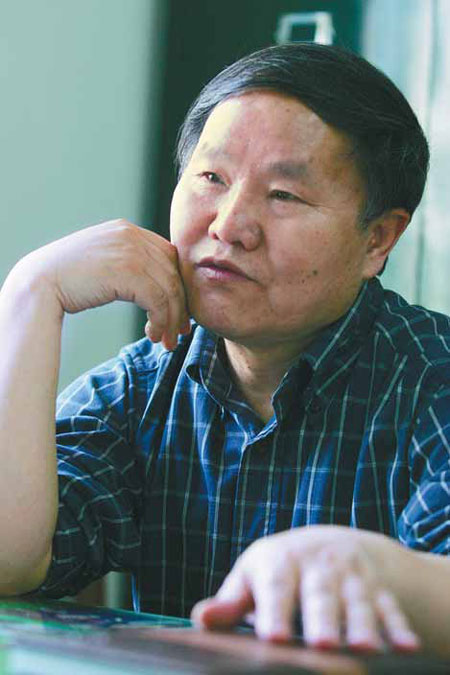Mining literary material
Updated: 2012-09-18 10:27
By Yang Guang (China Daily)
|
|||||||||||
 |
|
Author Liu Qingbang reveals the hardships faced by miners in many of his works, such as his prize-winning novella Sacred Wood (left). Photos Provided to China Daily |
Former miner and 'the king of short stories', Liu Qingbang artfully describes the rural-urban divide in contemporary China, Yang Guang believes.
If you introduce yourself as a friend of Liu Qingbang in mining areas across China, people will treat you to a glass of white liquor. Author Wang Anyi learned as much during a trip to a coal mine in Shanxi province.
Miner-turned-writer Liu comments this is the highest mark of respect he has received since he started writing almost 40 years ago.
The 61-year-old is hailed as the "king of short stories" and fellow writers view his works as "textbooks".
Most of his works adopt miners as the protagonists.
"The most frequent motifs of literature, such as the relationships between men and nature, men and death, and men and women, are brought into full play in the dark and grave underground," he says.
For instance, the struggle of human nature is fully demonstrated in his Lao She Literature Prize-winning novella Sacred Wood, whose film adaptation Blind Shaft won the Silver Bear at the 2003 Berlin Film Festival.
Criminals and drifters Song Jinming and Tang Zhaoyang live on the compensation money they extort from scams, such as befriending a naive man looking for a job and telling him that they know of a job at a coal mine.
Once they go down the shaft, they murder the victim and pretend it is a case of accidental death, and then collect payoff money from the mine owners. But the situation gets out of control when a new victim, 16-year-old Yuan Fengming, turns up.
Liu grew up in a rural village in Shenqiu, Henan province. Life was hard on the barren plain. He had little chance to read during his childhood and adolescence apart from fragments of picture-story books.
During the "cultural revolution" (1966-76), he joined millions of red guards in the "link up" movement from late 1966 to early 1967, when students cut classes and traveled across the country to propagate former chairman Mao Zedong's beliefs.
Related Stories
Khloe Kardashian preparing for X Factor role with self-help books 2012-09-13 17:07
When books look good on screen 2012-09-11 10:11
Dream banquet from book classic 2012-09-03 13:58
Book fair kicks off in Shanghai 2012-08-15 17:00
New Urban Blue Book unveiled by CASS 2012-08-15 14:44
Today's Top News
Rescuers race against time for quake victims
Telecom workers restore links
Coal mine blast kills 18 in Jilin
Intl scholarship puts China on the map
More bird flu patients discharged
Gold loses sheen, but still a safe bet
US 'turns blind eye to human rights'
Telecom workers restore links
Hot Topics
Lunar probe , China growth forecasts, Emission rules get tougher, China seen through 'colored lens', International board,
Editor's Picks

|

|

|

|

|

|





